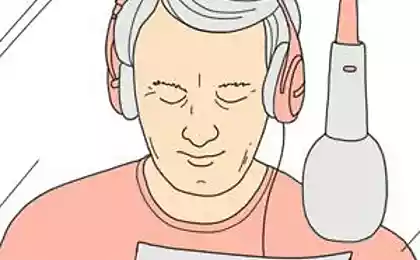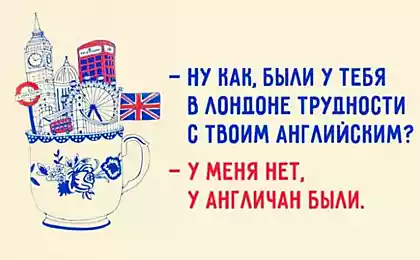754
Find out why we review movies and TV shows
What TV shows and movies do you like to watch? For example, I the New year is always back to the story about Harry Potter and a series of films about John McClane and January nights are reviewing "twin Peaks". Scientists say that this behavior is not only understandable but also useful.
The question of why people repeat some action again and again, the concern of philosophers, anthropologists, economists and psychologists for many centuries. Søren Kierkegaard (Søren Kierkegaard) wrote:
Repetition and recollection are one and the same movement, only in opposite directions. Remembering draws man back, forcing him to repeat what was in reverse order. Genuine repetition makes a person, remembering to anticipate what will be.
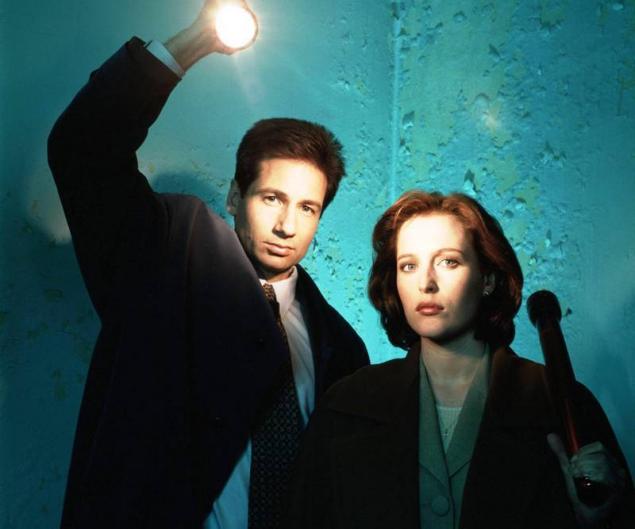
Poster for the TV series Secret Materials (1993)
The most common theory say: we appeal to the repetition of habit, addiction, ritual, or to enter into a state of status quo. Habits like running in the morning usually work automatically by themselves are regular. We don't even have to think about how to do that habitually, but that's the beauty.
Harmful habits such as Smoking, difficult to control and lead to physical dependence. This is the addiction.
In addition, there are rituals. For example, when we celebrate the New year, or wear lucky socks before the exam. Unlike habits, the rituals we choose and are able to control them. Ritual actions we perform are relatively rare.
The status quo is necessary in a situation when we desperately cling to the previous decision only in order not to accept the new. Because it's hard. Or because we are so exhausted mentally that the next task seems not just difficult, but overwhelming. You may recognize these excuses.
Instead, the scientists found that people are looking for familiar entertainment for certain reasons: for example, to regain lost sensations and emotions, or to evaluate the rapid passage of time.
Summing up the results of the research, Russell and Levi's introduced its own version of the four reasons why people prefer to return again and again to their favorite entertainment.
The simplest reasonMost simple reason why people are reviewing the same film, is that... well, they really like this movie!
Familiar visuals requires less energy and mental effort for the processing of incoming information. And when it is easy for us to think about something, we automatically see this as good and pleasant.
If this reason sounds too unscientific for you, here's the official explanation from the researchers of the problem. Russell and levy point out thatthis is called reconstructive consumption. That is a term used by scientists to describe the participants ' behavior, and again revising the "Star cruiser "Galaxy"" and "Seinfeld." These people wanted to remind ourselves what happened in the story, and also happy to notice new details that could only be seen during the revision of the series.
It seems that if you watch something again and again, sooner or later it will lose its original appeal. But psychologists say that repetition leads to attachment. It's called the exposure effect, and scientists believe some of the things we come to love because often return to them.
Perhaps a new song you like, not only because it is melodic and catchy and also because it on the radio already the thirtieth time in a day.
Nostalgic reason
Just as we are pleased to return to familiar movies and TV shows just because we know their story, we can be nice to reminisce about the past simply because it was once was.
The term "nostalgia" was coined in the seventeenth century to describe a neurological disease, common among Swiss mercenaries fighting abroad. There was a theory that said that soldiers yearn for the snow-covered mountains ringing of bells and the Swiss pastures. Four centuries later, this theory is ridiculous, and the concept of nostalgia has become a business model for sessions retrospectives on music channels and TV marathon of "the Simpsons".
Clay Routledge (Clay Routledge), a psychologist from the University of North Dakota, is engaged in research on the phenomenon of nostalgia. He argues: there are two "strain" of this cultural phenomenon.The first one is historical: nostalgia as an overall sense of longing for the past. Second — autobiographical: nostalgia as the longing of the individual by his own past. Sometimes we watch an old movie again to feel a sense of tenderness to what is already there. Sometimes we are more selfish. One study confirms Rutledge:people often listen to music from the past, because at that time they "feel loved" and "knew what we have lived."
We like to go back to their own pop cultural experience in order to think about the past and once again feel good and relaxed.
Modern scientists call this regressive re-consumption. We use entertainment as a time machine again to revive the fading memories.
Therapeutic reason
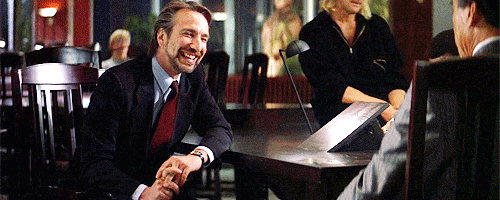
One of the stories given in the study by Russell and levy, impressed us. The subjects named Nelson told the researchers that went to the trip to Florence and Siena, ten years ago. Then he went on a trip with his wife and two children. 40 years later the wife and son of Nelson left this world. The man planned another trip to Italy and worked every detail of his journey. He stayed near the same attractions and visited the same cafes, hotels and restaurants. By his own admission, it was akin to a pilgrimage, a sentimental voyage. Nelson said that this trip helped him again to get on with your life.
The use of nostalgia as a kind of therapy — are not uncommon. This may be the best solution. Research suggests that nostalgia brings physical sensation of comfort and warmth.
One of the most enjoyable qualities of old movies is that they are unable to surprise us. We know how they will end, and we know how we feel after the final credits. This makes the re-consumption of something like a method of regulating the emotional state.
New books, movies and television shows can deliver the thrills, but they also had the ability to upset and disappoint us. Old movie will not betray: we get older, and it remains the same. Thus, we obtain an efficient tool to stabilize our emotional background and we get exactly what we expect. And there are no surprises.
The existential reason
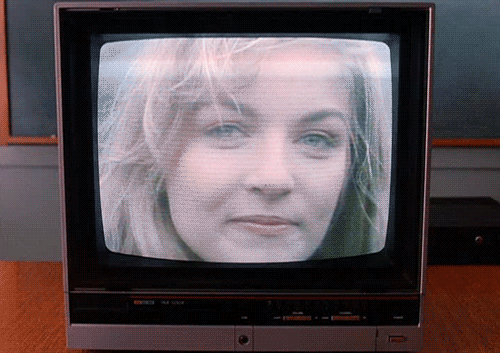
You know that feeling when you find a song not heard for several years, and from the very first notes she reveals to you a kaleidoscope of memories? A kind of musical analogue of the cookies madeleines of Marcel Proust...
Dynamic connection between past, present and future of the individual that emerged after the session re-consumption, gives the existential self-perception. Russell and levy say,interaction with a familiar object, even disposable, allows you to relive the experience, to understand the choices made once again to feel pleasure and enjoyment.
This is not nostalgia or therapy. It is a kind of palimpsest, when old memories and feelings imposed new point of view.published
P. S. And remember, just changing your mind — together we change the world! ©
Join us in Facebook , Vkontakte, Odnoklassniki
Source: lifehacker.ru/2016/02/20/na-povtore/
The question of why people repeat some action again and again, the concern of philosophers, anthropologists, economists and psychologists for many centuries. Søren Kierkegaard (Søren Kierkegaard) wrote:
Repetition and recollection are one and the same movement, only in opposite directions. Remembering draws man back, forcing him to repeat what was in reverse order. Genuine repetition makes a person, remembering to anticipate what will be.

Poster for the TV series Secret Materials (1993)
The most common theory say: we appeal to the repetition of habit, addiction, ritual, or to enter into a state of status quo. Habits like running in the morning usually work automatically by themselves are regular. We don't even have to think about how to do that habitually, but that's the beauty.
Harmful habits such as Smoking, difficult to control and lead to physical dependence. This is the addiction.
In addition, there are rituals. For example, when we celebrate the New year, or wear lucky socks before the exam. Unlike habits, the rituals we choose and are able to control them. Ritual actions we perform are relatively rare.
The status quo is necessary in a situation when we desperately cling to the previous decision only in order not to accept the new. Because it's hard. Or because we are so exhausted mentally that the next task seems not just difficult, but overwhelming. You may recognize these excuses.
- "I don't like this work, but new look do not want."
- "Global warming is a myth, and no one can convince me otherwise", which is equivalent to saying: "I have made my decision, I just can't remember why I accepted it".
- "No, I will not go into a new store. These pants are fine, I'm used to them, I can't imagine myself in my other pants".
Instead, the scientists found that people are looking for familiar entertainment for certain reasons: for example, to regain lost sensations and emotions, or to evaluate the rapid passage of time.
Summing up the results of the research, Russell and Levi's introduced its own version of the four reasons why people prefer to return again and again to their favorite entertainment.
The simplest reasonMost simple reason why people are reviewing the same film, is that... well, they really like this movie!
Familiar visuals requires less energy and mental effort for the processing of incoming information. And when it is easy for us to think about something, we automatically see this as good and pleasant.
If this reason sounds too unscientific for you, here's the official explanation from the researchers of the problem. Russell and levy point out thatthis is called reconstructive consumption. That is a term used by scientists to describe the participants ' behavior, and again revising the "Star cruiser "Galaxy"" and "Seinfeld." These people wanted to remind ourselves what happened in the story, and also happy to notice new details that could only be seen during the revision of the series.
It seems that if you watch something again and again, sooner or later it will lose its original appeal. But psychologists say that repetition leads to attachment. It's called the exposure effect, and scientists believe some of the things we come to love because often return to them.
Perhaps a new song you like, not only because it is melodic and catchy and also because it on the radio already the thirtieth time in a day.
Nostalgic reason
Just as we are pleased to return to familiar movies and TV shows just because we know their story, we can be nice to reminisce about the past simply because it was once was.
The term "nostalgia" was coined in the seventeenth century to describe a neurological disease, common among Swiss mercenaries fighting abroad. There was a theory that said that soldiers yearn for the snow-covered mountains ringing of bells and the Swiss pastures. Four centuries later, this theory is ridiculous, and the concept of nostalgia has become a business model for sessions retrospectives on music channels and TV marathon of "the Simpsons".
Clay Routledge (Clay Routledge), a psychologist from the University of North Dakota, is engaged in research on the phenomenon of nostalgia. He argues: there are two "strain" of this cultural phenomenon.The first one is historical: nostalgia as an overall sense of longing for the past. Second — autobiographical: nostalgia as the longing of the individual by his own past. Sometimes we watch an old movie again to feel a sense of tenderness to what is already there. Sometimes we are more selfish. One study confirms Rutledge:people often listen to music from the past, because at that time they "feel loved" and "knew what we have lived."
We like to go back to their own pop cultural experience in order to think about the past and once again feel good and relaxed.
Modern scientists call this regressive re-consumption. We use entertainment as a time machine again to revive the fading memories.
Therapeutic reason

One of the stories given in the study by Russell and levy, impressed us. The subjects named Nelson told the researchers that went to the trip to Florence and Siena, ten years ago. Then he went on a trip with his wife and two children. 40 years later the wife and son of Nelson left this world. The man planned another trip to Italy and worked every detail of his journey. He stayed near the same attractions and visited the same cafes, hotels and restaurants. By his own admission, it was akin to a pilgrimage, a sentimental voyage. Nelson said that this trip helped him again to get on with your life.
The use of nostalgia as a kind of therapy — are not uncommon. This may be the best solution. Research suggests that nostalgia brings physical sensation of comfort and warmth.
One of the most enjoyable qualities of old movies is that they are unable to surprise us. We know how they will end, and we know how we feel after the final credits. This makes the re-consumption of something like a method of regulating the emotional state.
New books, movies and television shows can deliver the thrills, but they also had the ability to upset and disappoint us. Old movie will not betray: we get older, and it remains the same. Thus, we obtain an efficient tool to stabilize our emotional background and we get exactly what we expect. And there are no surprises.
The existential reason

You know that feeling when you find a song not heard for several years, and from the very first notes she reveals to you a kaleidoscope of memories? A kind of musical analogue of the cookies madeleines of Marcel Proust...
Dynamic connection between past, present and future of the individual that emerged after the session re-consumption, gives the existential self-perception. Russell and levy say,interaction with a familiar object, even disposable, allows you to relive the experience, to understand the choices made once again to feel pleasure and enjoyment.
This is not nostalgia or therapy. It is a kind of palimpsest, when old memories and feelings imposed new point of view.published
P. S. And remember, just changing your mind — together we change the world! ©
Join us in Facebook , Vkontakte, Odnoklassniki
Source: lifehacker.ru/2016/02/20/na-povtore/









